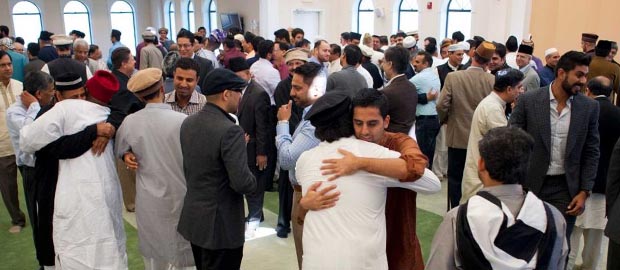A documentary featuring testimonials and stories of minorities was screened at the Jinnah Institute (JI) on Friday.
Titled ‘Strangers in their own land’ and ‘اپنی زمین پر اجنبی’ for English and Urdu segments respectively, the documentary is an initiative of the institute. It was screened at a closed-door event and was attended by its filmmaker Ali Aftab Saeed, human rights activists, and researchers, who opened the floor for discussion and encouraged feedback post-screening.
The documentary is part of a report by the Jinnah Institute (JI) on religious persecution and impact of religious extremism on the status of freedom of religion in the country. The documentary revealed that over 41 Ahmadis were killed over the past few years without any reason. It went on to highlight their struggles and problems in the daily and professional life, and its impact on their peace of mind.
Researcher: Rabia MehmoodThe striking aspect of the documentary was how sensitively it presented the stories. It also features the views of scholars, human rights activists and lawyers on the issue.
Rabia Mehmood, a researcher at the Jinnah Institute (JI) who was involved in the film, said the short documentary was for advocacy and based on ethnographic research carried out by the institute.
“We felt the need to produce this documentary because it was necessary to show an audio and visual representation of the tales of persecution. The plight of religiously persecuted is so haunting that we wanted Pakistanis and the world to hear their voice,” she said.
Saeed said he was contacted to make the documentary, but the initiative and the research was all done by the JI. “I was contacted by JI and since I feel strongly about the issue, I came on board. We travelled to Hazara, interior Sindh, Lahore, Karachi and Islamabad for the shoot,” he said.

The filmmaker further said that he thought he knew the struggles of minorities but he truly realized how grave the situation was while making the documentary.
“Accepting a problem is part of solving it so I really hope this effort plays the role of a catalyst to bring change in the country,” he said.
Speaking about the challenges faced while shooting on such a sensitive issue, Saeed told The Express Tribune that the biggest challenge was that none of the Ahmadis were willing to come on camera. This shows how they are living with fear of death in their own country, he added. “Eventually one person agreed but we had to hide his face for his own security,” he said.
The documentary will be released on the internet in the next few days.

